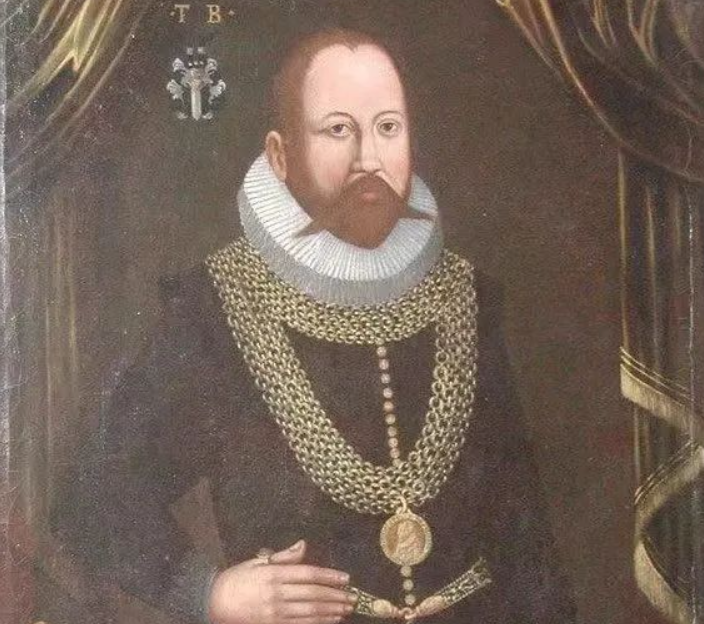When you think of great astronomers, names like Galileo or Copernicus might come to mind. But before them, there was Tycho Brahe—a man so dedicated to science that he built his own observatory, so eccentric that he wore a metal nose, and so stubborn that he died from refusing to use the bathroom. His life was filled with dramatic twists, groundbreaking discoveries, and a legacy that shaped modern astronomy.

A Noble Beginning with a Bizarre Twist
Tycho Brahe was born in 1546 into Danish nobility. His early life was anything but ordinary. His uncle, a wealthy and childless noble, had an agreement with Tycho’s parents to adopt him. However, when Tycho was born, his parents backed out. Undeterred, the uncle sued them—and won! As a result, Tycho was raised in luxury, given the best education, and groomed for a life of privilege.
But instead of becoming a politician or a court official, Tycho fell in love with the stars. At just 13 years old, he began studying astronomy, and by 14, he had witnessed his first solar eclipse, an event that left him fascinated by the cosmos.
The Duel That Cost Him His Nose
At 20, Tycho’s life took another strange turn. During a noble gathering, he got into a heated argument over a mathematical equation. In true 16th-century fashion, the only way to settle it was a duel. The fight took place at night, and in the darkness, Tycho’s opponent sliced off part of his nose.
Rather than wallow in self-pity, Tycho turned this setback into a statement. He crafted several prosthetic noses out of different metals, reportedly favoring one made of brass and copper. He always carried a special adhesive to ensure it stayed in place—a true 16th-century fashion icon.
A King’s Gift: The “Heavenly Castle”
Tycho’s astronomical talents caught the eye of King Frederick II of Denmark, who rewarded him with an entire island and a ton of gold to build an observatory. Tycho named it Uraniborg, meaning “Heavenly Castle.”
Unlike other astronomers of his time, Tycho didn’t work alone. He assembled a team to observe, record, and verify celestial data. This teamwork approach, much like modern scientific institutions or even Elon Musk’s SpaceX, allowed him to produce the most accurate star charts of his time—all without a telescope, which hadn’t been invented yet!
One of his most famous observations was the supernova of 1572, proving that the heavens were not fixed and unchanging as many believed. This discovery shook the scientific world and paved the way for future astronomers.
The Man Who Tracked a Star for Six Years
Tycho was meticulous—almost obsessively so. He and his team tracked the movement of a single star for six years, carefully recording its position night after night. His ability to collect and preserve vast amounts of data was groundbreaking. Decades later, this data helped his assistant, Johannes Kepler, formulate the laws of planetary motion, which revolutionized our understanding of the solar system.
The Downfall: New Kings, New Problems
After 20 years of success, Tycho fell out of favor when a new king took the throne. Unlike his predecessor, the new king didn’t care much for astronomy and cut off Tycho’s funding. Forced to leave his beloved observatory, Tycho wandered through Europe, eventually finding a new patron in Emperor Rudolf II of the Holy Roman Empire.
In Prague, Tycho met Johannes Kepler, a brilliant but struggling mathematician. Tycho recognized Kepler’s talent and took him under his wing, mentoring him in the art of celestial observation. This partnership would change the course of astronomy forever.
Death by Stubbornness?
Tycho’s life ended in an almost comical yet tragic way. At a royal banquet in 1601, he drank excessively but, due to court etiquette, refused to leave the table to relieve himself. This led to a ruptured bladder, causing a slow and painful death. His last words reportedly were: “Let me not seem to have lived in vain.”
Despite his unusual demise, Tycho’s legacy was anything but in vain. His vast collection of astronomical data became the foundation for Kepler’s laws of planetary motion, which in turn influenced Newton’s theory of gravity.
A Legacy Written in the Stars
Today, Tycho Brahe’s impact is immortalized on the Moon, where one of the most prominent craters is named after him. His story is a fascinating mix of brilliance, eccentricity, and relentless dedication. Whether it’s his nose, his duel, his castle, or his stubbornness, one thing is clear—Tycho Brahe was one of the most extraordinary figures in the history of science.
So next time you look up at the night sky, remember the man who mapped the stars, changed astronomy forever, and proved that sometimes, being a little stubborn can leave a lasting mark on history.

No comments yet.